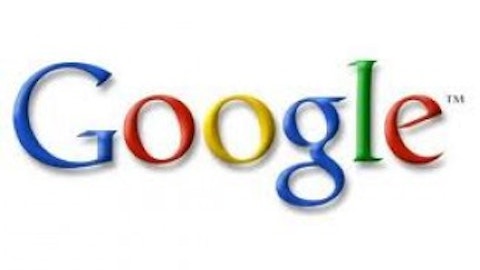One of the world’s largest internet companies, Yahoo! Inc. (NASDAQ:YHOO) has made some pretty savvy business moves over the past few years and it appears that their revenue is finally stabilizing. At first glance, Yahoo! appears to be a bit expensive, especially after the 75% gains so far this year. However, upon a closer inspection, I don’t believe this to be the case.
The current state of Yahoo!
Yahoo! Inc. (NASDAQ:YHOO), which was the internet’s top search destination until Google Inc (NASDAQ:GOOG) came into the picture, divides its business into four categories. Yahoo!.com includes the search, news, sports, and finance businesses, to name a few. Communications includes Yahoo!’s mail and messenger services, User-Generated Content includes groups, Yahoo! Answers, and Flickr, and Mobile & Emerging Products includes IntoNow and Connected TV. Yahoo! also has significant stakes in several Asian internet operations, which we’ll look at in more detail in a bit.
Having been through seven CEO’s in the past six years, it appears they have finally found one that is prepared to take the company back to its glory days in Marissa Mayer, who has already shaken things up at the company since taking the reins last year. One of her primary goals seems to be to change the culture at Yahoo! to catch up with other Silicon Valley companies.
In a move that was controversial amongst those involved, Mayer mandated that all employees who were working from home needed to either come work in the offices or quit. I applaud this decision as part of her plan to make Yahoo! Inc. (NASDAQ:YHOO) a more “collaborative business,” as it the case at companies like Google and Facebook Inc (NASDAQ:FB), where work-from-home arrangements are not very common. However, Mayer has upped the level of benefits employees receive in the office to be more on par with other similar companies, including free food, free phones, and a very generous maternity (and paternity) leave policy that was recently enacted.
The Microsoft deal and the state of the search business
In 2009, Yahoo! Inc. (NASDAQ:YHOO) announced a search/advertising pact with Microsoft Corporation (NASDAQ:MSFT), effectively outsourcing the company’s search business to Microsoft and their new (at the time) Bing search platform. Apparently this deal isn’t working out as well as Yahoo! had hoped, and the Wall Street Journal recently reported that Yahoo! has been trying to find a way out of the deal, as Yahoo!’s revenue per search is actually worse under the deal than it was before. Google Inc (NASDAQ:GOOG) has expressed its interest in forming a more lucrative partnership with Yahoo! Inc. (NASDAQ:YHOO), but it is unlikely that Yahoo! will get out of its agreement with Microsoft before 2015, which is the first point in the contract they could opt out.
Google may be more receptive to a deal than last time the two companies discussed the possibility in 2008. As of the latest data available, Google is slowly losing ground in the search business to Bing and Yahoo!. Google accounted for 66.5% of the search traffic in April, down 0.6% from the month before. Microsoft Corporation (NASDAQ:MSFT) (which broke the 17% level for the first time) and Yahoo! combined for a 0.6% gain, indicating that search traffic is slowly leaving Google and migrating toward the other two.
Asian investments
One part of Yahoo! Inc. (NASDAQ:YHOO)’s business that offers tremendous growth potential in the future is the company’s Asian investments, particularly the company’s 24% stake in Alibaba Group, a Chinese family of internet businesses specializing in e-commerce. Last year, Alibaba handled about $170 billion in e-commerce sales, more than eBay Inc (NASDAQ:EBAY) and Amazon.com, Inc. (NASDAQ:AMZN) combined, producing over $4 billion in revenue. Alibaba is expected to announce details of its IPO in the near future, and its valuation has been estimated to be between $55 billion and $120 billion (meaning Yahoo!’s stake would be worth between $13.2 billion and $28.8 billion).





